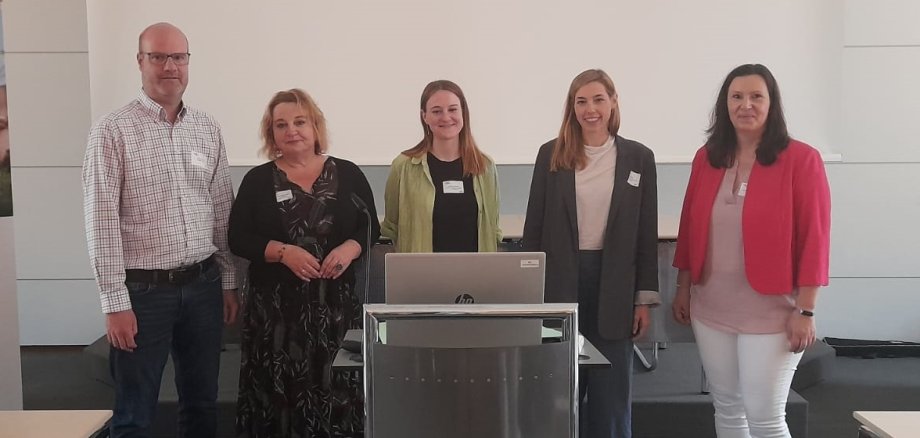Early help and child day care: exchange at symposium
Mentalisation refers to the ability to understand thoughts, feelings and intentions in oneself and others in order to create a positive professional relationship with parents and families. "Especially in child day care and early help, this offers many opportunities to support families individually and in line with their needs," emphasised Andreas Strake, Head of the Youth Service, at a specialist day to which the district invited all professionals in this field.
Strengthening the relationship between professionals and families
Daycare workers, healthcare professionals and professionals from the early help network accepted the invitation - and were able to actively try out the mentalisation approach in workshops. Beforehand, Dr Anna Georg and Dr Sophie Hauschild from the Institute for Psychosocial Prevention at Heidelberg University Hospital gave a talk on the topic and first introduced the concept and the underlying attitude.
"The overarching aim of using mentalisation skills is to strengthen the relationship between the professional and the family, especially in challenging situations. How does this work? You strive to better understand your own inner reasons and those of others," explains Dr Anna Georg. Theory was followed by practice: after the lecture, all participants were able to carry out their first active exercises on the concept and attitude of mentalisation. "Practising and trying things out is very important here. The more often you put it into practice, the better it can work," adds Dr Sophie Hauschild.
Furthermore, the focus was specifically on ruptures in professional relationships and how these can be improved through mentalisation. Monika Padberg-Koert and Bettina Götz from the district's specialist youth service took over the live presentation of a case study, which was used for active practice. The message: there is no communication without breaks, they are absolutely normal. The only thing that matters is how they are dealt with. "The particular attractiveness of the concept of mentalisation for professionals results from the fact that fundamental patterns of experience and behaviour of working together can be "newly" understood and reflected upon," summarise Bettina Götz and Monika Padberg-Koert. "This results in an extremely important social reference for the work of professionals in child day care and early help." This also became clear from the active participation and lively questions.
The district regularly organises specialist days of this kind in order to promote exchange with professionals and with each other. The joint event for child day care and early help was also organised to mark the tenth anniversary of early help and the 50th anniversary of child day care.
